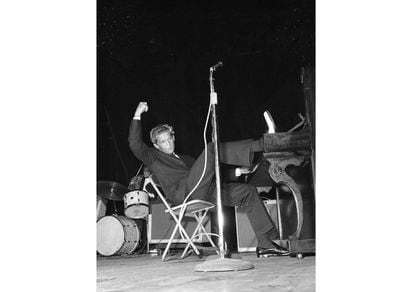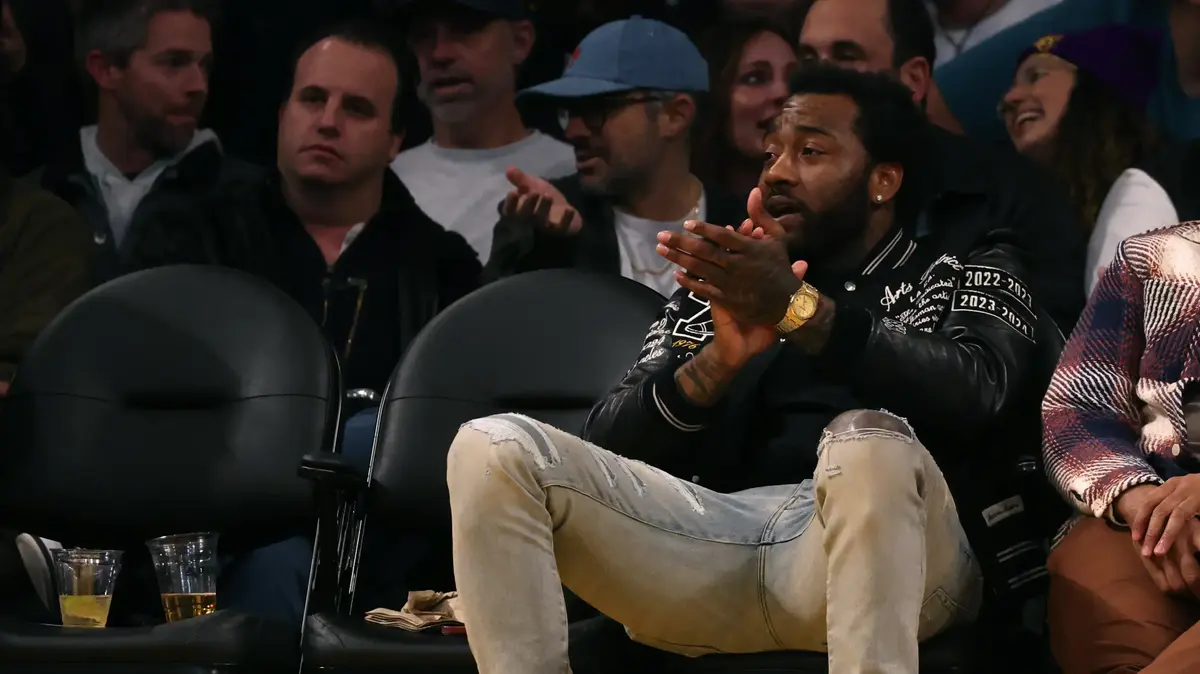With his malevolent spark, Jerry Lee Lewis thus dispatches Elvis Presley's relationship with his controversial
manager,
Colonel
Tom
Parker: “Elvis was Elvis because of
Colonel
Parker, who treated him like a monkey in a cage.
I might have been better off with a
Colonel
Parker, but I'm afraid he couldn't have done with me."
If a year ago Todd Haynes' documentary about the Velvet Underground brilliantly reconstructed the birth of one of the sounds that changed contemporary culture, this new edition of Cannes coincides with
Elvis,
the delirious
biopic
by Australian Baz Luhrmann about the king of rock and two documentaries by Ethan Coen and Brett Morgen on Jerry Lee Lewis and David Bowie respectively.
If
Jerry Lee Lewis: Trouble in Mind
stands out for its virtuoso editing and for reminding the world that the last rock pioneer is still alive (86 years old), Brett Morgen's
Moonage Daydream
is an immersion in one of the most transformative and luminous figures of pop music, David Bowie.
Tom Hanks and Austin Butler at the presentation of 'Elvis'. GUILLAUME HORCAJUELO (EFE)
But the King is the King and Elvis monopolizes all the spotlights of a festival that has reserved for Baz Luhrmann the honors of a blockbuster with Tom Hanks as Tom Parker and the young actor Austin Butler as the myth born in a barracks. Tupelo, Mississippi.
Elvis is a baroque and gimmicky
biopic
that is confusing for those who don't know the story and burdensome for those who do.
The kitsch
exaltation
that the director of
Moulin Rouge
mounts ends up being a stomach-churning delirium: the sum of Luhrmann and Graceland is simply too much.
But the worst thing about the film is not its predictable extravagance or its (on the other hand, very careful) aesthetics (Miu Miu and Prada clothes, Manolo Blahnik shoes), but how it reduces the life of the musician to that of a kind of superhero of comic destroyed by a villain with a gut and a cigar.
The painful infantilization of the character denigrates him to the point of reducing him to a
fairground
souvenir .
Luhrmann turns his life into a five-ring circus for children that whitens the human side of him and therefore the dark side of him.
Narrated from his deathbed, Parker recalls how the toy was invented, a doll that is obviously what most interests the director of a film that perpetuates the idea of that monkey in a gilt cage for whom even his elders felt compassion. rivals.
Both born in Sam Phillips' Sun Records studio, Jerry Lee Lewis's life is condensed in this film directed by Ethan Coen thanks to a phenomenal editing by Tricia Cooex, Coen's professional partner and wife.
Produced by Mick Jagger,
Jerry Lee Lewis: Trouble in Mind
is a documentary stitched together through archives and documents and with a single voice, that of a man capable of shooting one of his musicians, marrying seven times - the first to at 16 years old and the last one at 73—, also doing it in the fifties with a 13-year-old girl, playing the piano in a unique way with his hands, elbows and feet and starting over when, two years ago, after a heart attack, he had to learn to play it again.
An image from the documentary 'Jerry Lee Lewis: Trouble in Mind', by Ethen Coen.
AP
If Luhrmann beatifies the broken puppet in Elvis, Coen unleashes a true torrent where the best and the worst of a human being are mixed.
A guy who, through interventions and television interviews, unravels, without going too deep, but offering enough clues, a life that lives up to his nickname: The Killer.
To paraphrase Bruce Springsteen, Jerry Lee Lewis “doesn't play rock & roll.
Jerry Lee Lewis is rock & roll."
A controversial icon who likes to flirt with the hell out of him: "I'm actually a good guy," he says.
Between one and the other,
Moonage Daydream,
by Brett Morgen, surrenders to the inexhaustible figure of David Bowie.
The documentary is a very sensory approach to the complex identity and beauty of a man who embraced transformation and a wandering life.
"I am my main experiment," says the musician with a thousand faces, a "collector of ideas and personalities" who sought and found answers in Nietzsche, Buddha and his older brother Terry.
Son of a previous marriage of his mother, it was Terry who introduced him to Jack Kerouac, the
beatniks
and John Coltrane.
"That changed my life," says Bowie.
His brother, who suffered from schizophrenia, was, despite his constant absences, one of the most important figures in his life.
Terry's fragile mental health soon made him realize that he was more comfortable in the chaotic and fragmented.
Also that "everything is garbage, and garbage is wonderful."
An image of 'Moonage daydream'EFE
All his musical stages are linked to the places where he lived: Brixton, Los Angeles, Berlin, Tokyo, Japan, Australia... Musician, painter and actor,
Moonage Daydream
insists on transformation as the axis of his art, from a messianic artist to space man.
A true free spirit whose extreme sensitivity made him shield himself against love until, already in his maturity, he met the model Imán.
It was then that the famous epiphany of
Heroes,
one of his most universal anthems, came true for more than just one day.
Exclusive content for subscribers
read without limits
subscribe
I'm already a subscriber


/cloudfront-eu-central-1.images.arcpublishing.com/prisa/A5TSQEFXJJDSVA5WC57IECJUSQ.jpeg)






/cloudfront-eu-central-1.images.arcpublishing.com/prisa/2QNGIEEKTFGRXYFY7DZOTWJJAI.jpg)





